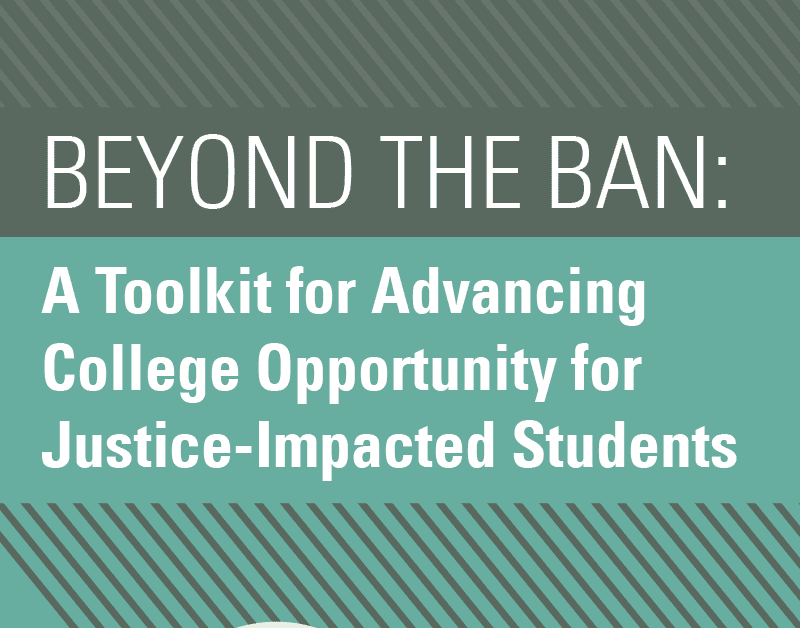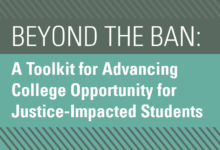
Letter From the Fellows
“Education is freedom.” — Paulo Freire, Pedagogy of the Oppressed
“As a society, our decision to heap shame and contempt upon those who struggle and fail in a system designed to keep them locked up and locked out says far more about ourselves than it does about them.”
— Michelle Alexander, The New Jim Crow: Mass Incarceration in the Age of Colorblindness
For decades, political leaders have used their power to keep incarcerated and formerly incarcerated individuals locked out of higher education. They’ve imposed morally bankrupt, freedom-denying policies and practices, despite the proven, long-term returns of a college education for individuals like us, and broader society.
Higher education institutions have been complicit in the denial of opportunities for justice-impacted individuals. By cutting off access to scholarships, refusing to reduce prison sentences for those enrolled in higher education, and making it difficult and expensive for colleges to run prison education programs, state officials have turned their backs on our parents, siblings, and cousins who yearn to continue their education while on the inside.
By denying previously incarcerated persons access to federal food and housing assistance and allowing colleges to screen out applicants with prior convictions, state officials have stacked the odds against us and made it nearly impossible to pursue a higher education upon release from prison.
By throwing up barriers to employment and election participation based on incarceration history, state officials have all but assured that previously incarcerated individuals remain locked out of full citizenship.
This must change. Our hope is that the information in this toolkit can help.
Together with colleagues at The Education Trust, and with support from partners in the field, we’ve identified several unjust barriers that keep incarcerated and formerly incarcerated individuals from accessing a higher education and benefiting from it and participating fully in society. While we’ve gathered detailed information for eight states, we are calling on elected officials — governors, state legislators, heads of statewide higher education and corrections departments, and others — to immediately remove these barriers wherever they exist and enact more civil and humane policies that will make it easier for students who are, or have been, incarcerated to pursue a higher education. Congressional delegates can also use their influence at the state level to make a positive impact. For advocates engaged in this work, we’ve included tools, such as an op-ed writing guide and a template for creating a “power map” in each state (see our State Decision-Making Agency and Organization Tracker).
We deserve our freedom. We deserve an education. And so do the millions of currently and formerly incarcerated Americans who have been failed by broken systems and poor public leadership.
The federal restoration of Pell Grants for students in prison gives us hope. Let us build on that hope and expand our collective freedom by tearing down the barriers to a higher education that remain in the states.




